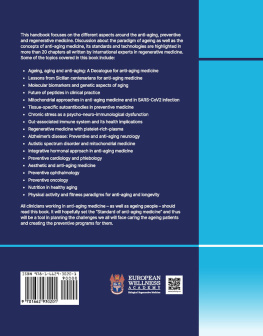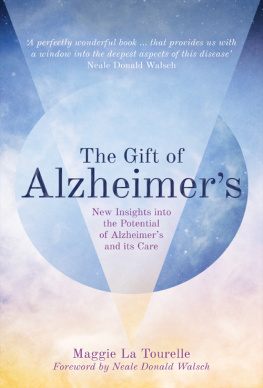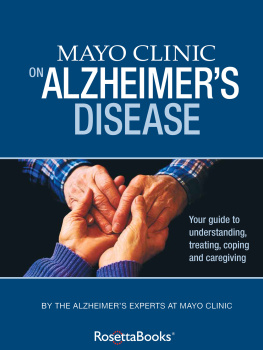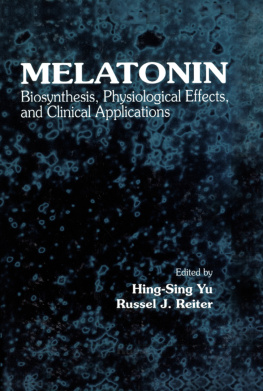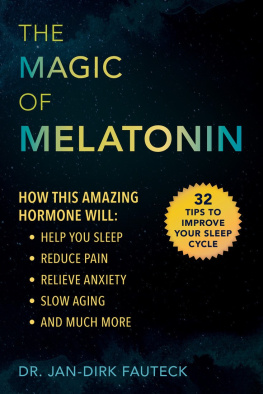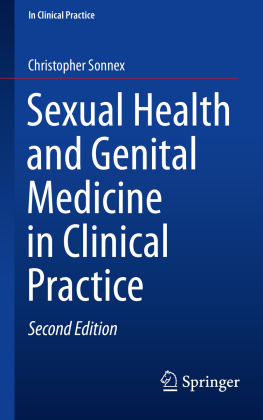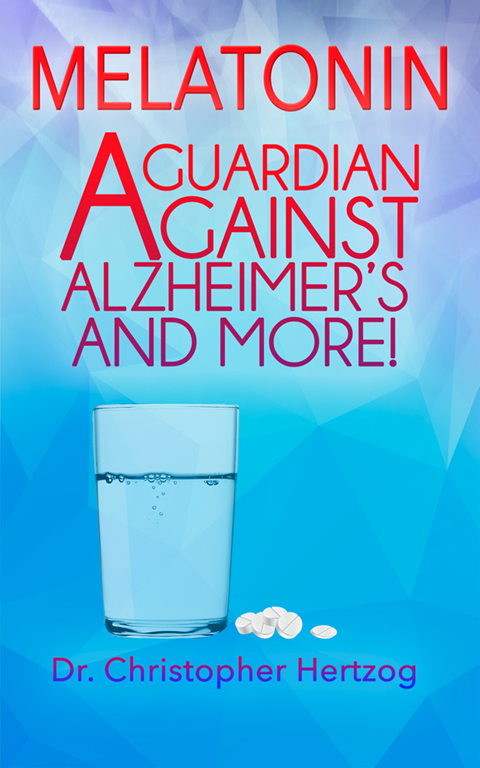Copyright
Melatonin
A Guardian against Alzheimers and more!
1st edition 2017
Text by Dr. Christopher Hertzog
eISBN 978-1-946765-58-1
Print ISBN 978-1-946765-59-8
Published by www.booksmango.com
E-mail:
Text & cover page Copyright Dr. Christopher Hertzog
All rights reserved. No part of this book may be reproduced, copied, stored or transmitted in any form without prior written permission from the publisher.
This ebook is licensed for your personal enjoyment only. It may not be re-sold or given away to other people. If you would like to share this book with another person, please purchase an additional copy for each recipient. If you are reading this book and did not purchase it, or it was not purchased for your use only, then please purchase your own copy. Thank you for respecting the hard work of this author , editors, researchers, copyright holder, publisher and contributors.
Preface
Melatonin as a vital hormone in the body is both underrated and misunderstood in many circles.
Whilst most people have heard of Melatonin, it is generally thought of in association with improving sleep patterns or helping to overcome the effects of jet-lag on long haul flights. As this book is primarily intended for a laymans reading, I plan to reach beyond the normal expected use for this hormone, and look at other ways in which it can be of benefit in relation to senile and pre-senile dementia, Alzheimers disease (AD), Parkinsons Disease (PD), and even its controversial role in treating certain types of malignant epilepsy.
What in fact is the most prevalent disease in the developed world? Is it cancer? Or heart disease?
No, it is Alzheimers and associated conditions, especially in the U.S. where the real numbers of sufferers are well documented!
It is in this direction that I intend to spearhead information in this book, and open the publics eyes to some extent, to what is fast becoming one of the biggest and feared diseases around. The tragedy is that many sufferers are unaware of their condition, and it is left to family members and others around them to deal with the consequences! Very often, elderly patients are just removed from their familiar surroundings at home, and put into a care facility, where they languish until they eventually die.
Dr. Christopher Hertzog
May. 2017, U.K.
Chapter 1 - What exactly is Melatonin?
Melatonin is an essential hormone produced in the body and frequently attributed in origin to the Pineal Body, a small but vital organ found at the back of the brain, just above the brain stem.
Its chemical name is N-acetyl-5-methoxyserotonin, which is a derivative of the chemical, tryptophan - an essential amino acid, which is one of the building blocks which regulate a mass of activities in the body, which is the reason it is often referred to as a Master Hormone. This is because it affects so many other functions in the body, as well as forming the basic constituent of various tissues, such as bone, cartilage and muscle fibre.
Melatonin is best known for its effect on sleep patterns, which is why it is best if taking it as a supplement, it should be administered approximately one hour before going to bed. Every living body on earth produces Melatonin, from the simplest amoeba up to the human species, but the problem is that its production decreases with age - the onset of which is now taken to start at around 26 years old! For anyone younger than that, there is generally no need to augment with any Melatonin supplement, but much older than that it would be advisable to seriously consider it, as in addition to providing a sound nights sleep it will also protect cognitive ability and combat any early stages of dementia or pre-senile dementia in older age. It is also responsible for overseeing Circadian Rhythm within the body, lasting around 24 hours or the same length as our day!
As the body is subjected to light during the day, Melatonin secretion ceases, but is released again as soon as the body is immersed in darkness again, which is usually at night time. People who are involved in shift work and have to work under bright light through the night, will suffer from disturbed Melatonin release. It is therefore pointless taking Melatonin supplementation during the day, when the body is already working on its own production, ready for release at night.
People living in a Northern climate and subject to long drawn out nights, may well release more Melatonin over a longer period. As Melatonin production is so critical in relation to other hormone production in the body, it is advisable to treat levels of the hormone in the body seriously, as levels decrease with aging from 30+ onwards, and it would be sensible to supplement it gradually as one ages, which may result in other far reaching benefits throughout the body, such as the production of HGH or Human Growth Hormone, sex hormones as regulated by the Adrenal gland, and a powerful antioxidant effect to counter any free radical damage, enhance immune levels and a whole lot more, as we shall see in later chapters.
Chapter 2 - Why Is Melatonin Important In The Body?
Every human body needs and produces Melatonin. Without it, life would be well nigh impossible. Not only is this hormone vital in itself, but it controls other endocrine (hormone producing) glands as well. Secretion decreases with age, so likewise do the benefits it bestows. Irregular sleep patterns or abnormal shift work disturb normal Melatonin production and subsequent release, at any age. Light prevents it from being secreted and darkness enhances it, even if the person concerned is blind!
The chemical name for Melatonin is N-acetyl-5-methoxyserotonin, with a chemical formula of CHN)

Diagram of the chemical structure of Melatonin
Some of the most valuable research in this field has been carried out by Dr Russel Reiter at the University of Texas in San Antonio.
Joel Blanchard, in his book on the Pineal gland and Enlightenment, had direct access to much of Dr. Reiters original research papers, and has highlighted many of the main beneficial effects of Melatonin, citing that it ought to be regarded more as a powerful antioxidant than a hormone! He also claims that the Pineal gland is already damaged in most peoples bodies by adulthood, around 18 years old, due to the addition of sodium fluoride to drinking water, toothpastes, mouth rinses and of course food itself which is sprayed with a plethora of fluoride based pesticides. It seems that fluoride causes calcium phosphate crystals to form over the Pineal gland, so in fact a form of hardening or calcification takes place, rather than the soft tissue the gland ought to be exhibiting! He claims that this calcification can be reversed by taking EDTA or ethylenediaminetetraacetic acid, which can have the effect of eliminating some of the heavy metals and minerals introduced into the body by over fluoridisation. EDTA will also remove calcium in atherosclerotic plaques without depleting calcium levels elsewhere. Luckily, it is readily obtainable through the Internet and is relatively inexpensive!
The benefits of Melatonin are almost too numerous to quantify, but apart from helping with sleep patterns, Circadian rhythm and overcoming jet-lag, here are a few of the other plus points that can be obtained by ensuring maintenance of the correct level of the hormone in the body:- It helps to protect the brain from oxidation, and combats the ravages of free radicals in the liver, kidneys and pancreas.


